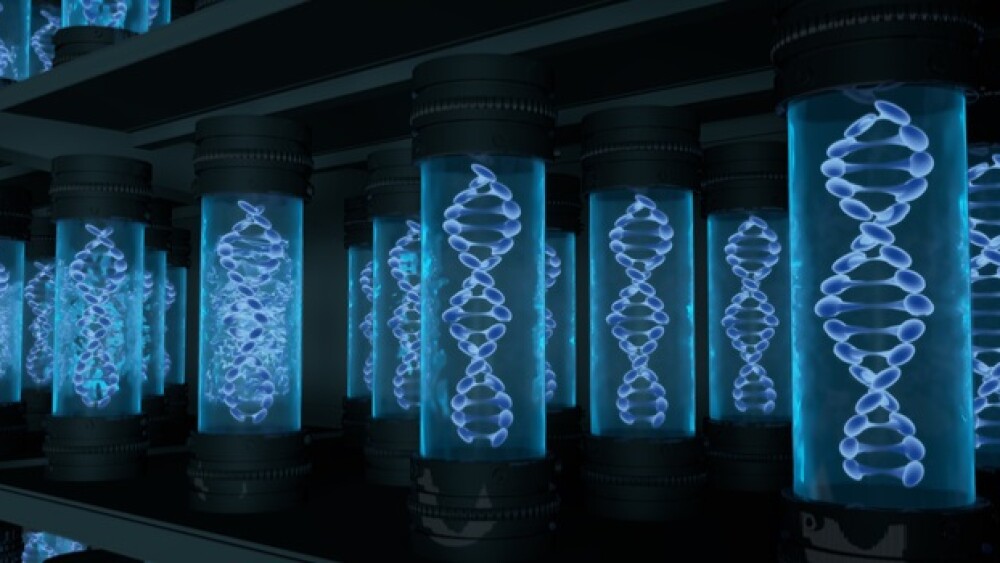Boston-based startup Catalog is one of the companies leading the way in the development of commercially viable DNA data storage.
There is a vast amount of data in the world but only a limited amount of space for storage. In 2017 more than $20 billion was spent on new data centers and in the first quarter of this year, more than $4 billion has been spent on even more data investments. But there’s still not enough space for storage.
It is estimated that by 2025, there will be approximately 160 zettabytes of data, but current storage projections anticipate only having the capability to store about 12.5 percent of that data. But soon, there could be, thanks to new technology that allows data to be encoded and stored in bits of DNA. Boston-based startup Catalog is one of the companies leading the way in the development of commercially viable DNA data storage. Catalog, which has spent the past year at IndieBio in San Francisco, announced it has secured $9 million in funding to support its DNA data storage. Until now, DNA storage has been a quest for researchers but was not believed to be ready for commercialization.
Hyunjun Park, one of the co-founders of Catalog, said there has been a tremendous advancement in storage technologies made over the past 60 years, but it’s not enough to meet future storage needs.
Not only are there concerns about the loss of data due to the lack of space, but Catalog notes there are also environmental issues as well. Current data centers consume enormous amounts of energy. Additionally, existing storage media are susceptible to degradation, which translates into an eventual loss of data. To top it off, there are cost issues at stake as well, particularly when it comes to transmitting the stored data. In its announcement, Catalog said it is cheaper to physically move a company’s hard drives on a truck than it is to send over the internet.
“This is why we are excited about DNA, perfected by nature over four billion years of evolution,” Park said.
DNA storage is seen are more reliable, sustainable and transportable than existing data storage methods. Catalog said all the world’s data could be stored in something the size of a coat closet through DNA storage. By using enzymes to manipulate DNA, it is cost-effective and easy to copy and distribute data, the company said in a statement. Not only that, but DNA data storage does not have the degradation concerns that typical hard drives have. By using DNA to store data, that information is retained for more than 1,000 years.
Catalog’s method decouples the DNA synthesis process from the encoding process. The process generates large quantities of just a few different molecules and then encodes the information by generating a large diversity from the premade molecules. To test its methods, Catalog has encoded a number of literary works in DNA, including Douglas Adams’ “The Hitchhiker’s Guide to the Galaxy” and Robert Frost’s “The Road Not Taken.”
Catalog said its first-generation commercial product will include an online interface for customers. Catalog will handle writing the data into DNA using the company’s machine. Once encoded into the DNA, the data can then be stored by Catalog or at the customer’s own facility. Catalog said storage is simple as it requires “nothing more than a commercial refrigerator.” As Catalog kicks off its commercial phased, the company said it will focus its first commercial pilots on governmental organizations (including intelligence and space), as well as IT agents and the entertainment business.
Catalog’s funding round was led by New Enterprise Associates (NEA) with participation from OS Fund, Day One Ventures, messaging app Line, Data Collective, Green Bay Ventures, AME Cloud Ventures, Industry Ventures, and others.
Forest Baskett, General Partner at NEA, said the Catalog team has “unmatched scientific expertise paired with an entirely new approach, uniquely positioning them to make DNA data storage a viable solution in the near term.”
As Catalog, founded by Park and Nathaniel Roquet, moves into its commercial phase of encoding data into DNA, the team is joined by Chief Science Officer Devin Leake, who was most recently Head of DNA Synthesis at Ginkgo Bioworks. Prior to Ginkgo, he held positions at Gen9, Thermo Fisher and Dharmacon.





